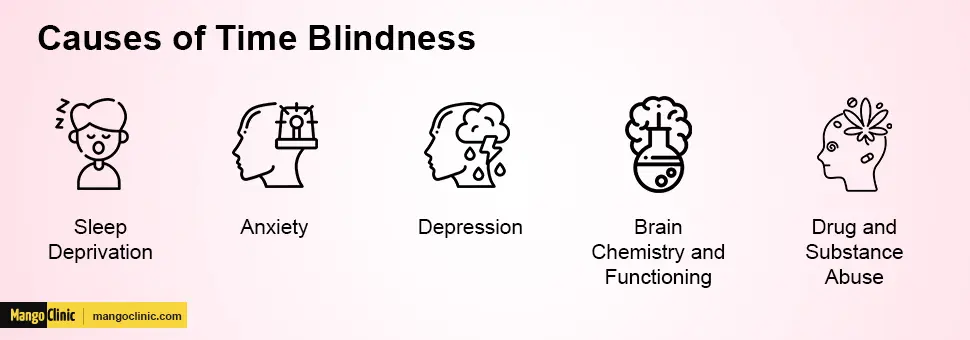Studies have been done to prove that Time Blindness is a real issue that can cause someone to “lose track of time.” Most of my life, I was scolded for being late, but what actually hurt was when I thought back to why I was running late. More than half of the time, I couldn’t tell you. It seemed like I had plenty of time to get ready and only did what was necessary to get on with my day. Slowly, I learned to use alarms and notifications to pull me out of my hyperfocus and evaluate what was going on around me. I also learned that it was better to aim to be 30 minutes early for appointments. That way, if I were running late, I’d be the only one to know for the first 30 minutes. If I managed to make it to my destination early, I’d have a “reward” waiting: A book I’d been trying to read, a game to play on my phone, social media to scroll, etc.
I remember waiting for a plane with my dad. The way I recall it, we sat down and I started reading a newspaper article. Then, “seconds” later, my dad was standing at the gate, yelling at me that the plane is leaving and I need to move. Ummm… What?! This is the most significant memory I have of “blacking out” and being unable to name what happened in those minutes – I can’t even tell you how many minutes went by, only that they were enough to change my reality from “Dad is sitting next to me, reading” to “Dad is standing 15 yards away, yelling.” Bizarre, indeed.

Years later, my significant other would come home from work and I’d vent that I’d been busy all day but felt like I got nothing done. When he would ask what I did, I’d struggle to remember tasks that added up to a “time value” of more than an hour or two. Even I was confused. I legitimately couldn’t name what took up so much of my day, even though it just happened. At that point, I started working on the habit of using Google Calendar like a diary, documenting where I spent my time so that I could look back at the end of the day and confirm that I’d accounted for all of my time. Years later, I still have “empty” days on my calendar that would cause me to genuinely wonder where I was and what I was doing at that time.
If you experience this too, you’re able to recognize the cost of hyperfocus, despite the benefits. It feels frustrating and disappointing when I cannot name what took up all of the time of my day, especially when I don’t feel I have enough to show for it. I chose this as the topic for today’s blog post because I woke up thinking about how I was sure I’d be able to work 25 hours on a project last week and, when I calculated the time spent… it was 2… TWO hours. -.- What the actual f…? How did that even happen? I went back through my calendar. Sure enough, I’d prioritized other projects because I believed two things:
- What I chose to do at the time was more urgent or important than my “25-hour project.”
- I still had plenty of time left in the week to work on the “25-hour project.”
Hindsight is 20/20. Right? I can look back at the last ten days with clarity and tell you with complete confidence that at least half of the choices I made turned out to be wrong and I did not, in fact, have “plenty of time left…”

Now, I’m not one to share a problem without offering at least a solution or two. If you know how I feel, then I know you’ll appreciate these tips:
- Use a timer (all smart phones and computers have one) for the following:
- GUESS how long your next task will take and set a timer for HALF OR LESS. Examples:
- You’re driving a long distance and listening to a great podcast so you’re concerned you’ll miss your turn. The GPS says that you need to exit the highway in 60 miles and you’re driving about 60 miles per hour. Set your timer to “wake you up” in 30 minutes so that you can “come back to earth” and see the GPS again. In theory, it will tell you to exit in 30 miles. Set the new timer for 15 minutes. If you were driving faster, you might need to exit in 26 miles. In this case, you’d set the timer for 13 minutes. If you continue this process, you’ll eventually be able to shift your focus back to the driving directions when you most need to be made aware of them. Make sense?
- You’re working on a project (like a blog post). You’ve allotted 30 minutes for this task. Set the timer for 15 minutes so that you can ask yourself if you’re “halfway done.” If not, you need to ask if that’s due to a distraction? Or did you just estimate poorly the time needed for the task? I sat down at 8:00AM to type this. It’s 8:35 and I’m far from done. No distractions. I was wrong about how long I’d be typing. This isn’t meant to make me feel bad. It’s meant to train me so that I can make better estimates in the future. Dana K. White of aslobcomesclean.com tells of how she used to believe that cleaning her kitchen would take much longer than it really took. So she would set a stopwatch and time herself to learn how long a task actually takes. I tried this… My problem is that, if I use a stopwatch and I get distracted, then I’ll come back to my phone later in the day to find the stopwatch is still running. That’s why I use the TIMER instead. I get little “wake up calls” as often as I need so that I can either get back on track or learn that the task at hand takes longer than expected.
- GUESS how long your next task will take and set a timer for HALF OR LESS. Examples:
- Check in with yourself throughout the day, using a digital calendar as a diary:
- If you have places to be and people to see throughout the day, at specific times, those blocks should already be represented in your calendar. We can chat about this in another post.
- Look at today’s calendar. Is all of your time accounted for? Do you need to add a block titled, “Breakfast” or “Get Ready?” Maybe you had to run an errand or do some laundry. Account for that time so that you’re not beating yourself up later when you cannot figure out how the day “got away from you.”
I had almost NOTHING planned yesterday. When I looked at my calendar this morning, I realized that I had not accounted for what I actually did. I know that I’ll look back in a few months and wonder why that day is empty. So I accounted for the significant blocks I could remember from yesterday for future Tamar’s sake.
Give yourself grace. I’ve been using these tactics for years and it’s still not perfect, but I’m better off than I was and optimistic that I can continue to improve. If you have tips that work for you, please share them in the comments. You never know whose life you’ll change with something you think is obvious. I’ve come to learn that common knowledge is anything but.

